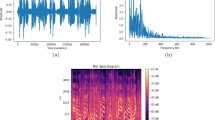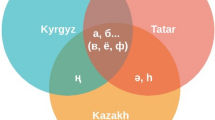Abstract
We present first speech recognition systems for the two severely under-resourced Malian languages Bambara and Maasina Fulfulde. These systems will be used by the United Nations as part of a monitoring system to inform and support humanitarian programmes in rural Africa. We have compiled datasets in Bambara and Maasina Fulfulde, but since these are very small, we take advantage of six similarly under-resourced datasets in other languages for multilingual training. We focus specifically on the best composition of the multilingual pool of speech data for multilingual training. We find that, although maximising the training pool by including all six additional languages provides improved speech recognition in both target languages, substantially better performance can be achieved by a more judicious choice. Our experiments show that the addition of just one language provides best performance. For Bambara, this additional language is Maasina Fulfulde, and its introduction leads to a relative word error rate reduction of 6.7%, as opposed to a 2.4% relative reduction achieved when pooling all six additional languages. For the case of Maasina Fulfulde, best performance was achieved when adding only Luganda, leading to a relative word error rate improvement of 9.4% as opposed to a 3.9% relative improvement when pooling all six languages. We conclude that careful selection of the out-of-language data is worthwhile for multilingual training even in highly under-resourced settings, and that the general assumption that more data is better does not always hold.
Access this chapter
Tax calculation will be finalised at checkout
Purchases are for personal use only
Similar content being viewed by others
Notes
- 1.
- 2.
OpenSLR Tunisian Modern Standard Arabic corpus, accessed 2021-02-21 at http://www.openslr.org/46/.
References
Arnott, D.W.: The Nominal and Verbal Systems of Fula. Clarendon Press, Oxford (1970)
Arnott, D.W.: Some aspects of the study of Fula dialects. Bull. Sch. Oriental Afr. Stud. Univ. Lond. 37(1), 8–18 (1974)
Barry, A., Barry, I., Constable, P., Glass, A.: Proposal to encode ADLAM nasalization mark for ADLaM script (2018)
Boersma, P., Weenink, D.: Praat: doing phonetics by computer [Computer program]. Version 6.1.39. http://www.praat.org/. Accessed 26 Mar 2021
Donaldson, C.: Clear Language: Script, Register and the N’ko Movement of Manding-speaking West Africa. Ph.D. thesis, University of Pennsylvania (2017)
Donaldson, C.: Orthography, standardization, and register: the case of Manding. In: Lane, P., Costa, J., Korne, H.D. (eds.) Standardizing Minority Languages: Competing Ideologies of Authority and Authenticity in the Global Periphery, 1st edn., pp. 175–199. Routledge (2017). https://doi.org/10.4324/9781315647722
Fagerberg-Diallo, S.: A Practical Guide and Reference Grammar to the Fulfulde of Maasina 1 & 2. Joint Christian Ministry in West Africa, Jos (1984)
Grézl, F., Karafiét, M., Veselý, K.: Adaptation of multilingual stacked bottle-neck neural network structure for new language. In: Proceedings of 2014 IEEE International Conference on Acoustics, Speech and Signal Processing (ICASSP), Florence, Italy (2014)
Heigold, G., et al.: Multilingual acoustic models using distributed deep neural networks. In: Proceedings of 2013 IEEE International Conference on Acoustics, Speech and Signal Processing (ICASSP), Vancouver, Canada (2013)
Huang, J.T., Li, J., Yu, D., Deng, L., Gong, Y.: Cross-language knowledge transfer using multilingual deep neural network with shared hidden layers. In: Proceedings of 2013 IEEE International Conference on Acoustics, Speech and Signal Processing (ICASSP), Vancouver, Canada (2013)
Katzner, K., Miller, K.: The Languages of the World. Routledge (2002)
Ko, T., Peddinti, V., Povey, D., Khudanpur, S.: Audio augmentation for speech recognition. In: Proceedings of Interspeech 2015, Dresden, Germany (2015)
Menon, R., Saeb, A., Cameron, H., Kibira, W., Quinn, J., Niesler, T.: Radio-browsing for developmental monitoring in Uganda. In: Proceedings of 2017 IEEE International Conference on Acoustics, Speech and Signal Processing (ICASSP), New Orleans, USA (2017)
Osborn, D.W., Dwyer, D.J., Donohoe, J.I.J.: A Fulfulde (Maasina) - English - French Lexicon: A Root-Based Compilation Drawn from Extant Sources. Michigan State University Press (1993)
Padhi, T., Biswas, A., de Wet, F., van der Westhuizen, E., Niesler, T.: Multilingual bottleneck features for improving ASR performance of code-switched speech in under-resourced languages. In: Proceedings of the First Workshop on Speech Technologies for Code-switching in Multilingual Communities (WSTCSMC), Shanghai, China (2020)
Park, D.S., et al.: SpecAugment: a simple data augmentation method for automatic speech recognition. In: Proceedings of Interspeech 2019, Graz, Austria (2019)
Povey, D., et al.: The Kaldi speech recognition toolkit. In: Proceedings of 2011 IEEE Workshop on Automatic Speech Recognition and Understanding (ASRU), Hawaii, USA (2011)
Povey, D., et al.: Purely sequence-trained neural networks for ASR based on lattice-free MMI. In: Proceedings of Interspeech (2016)
Saeb, A., Menon, R., Cameron, H., Kibira, W., Quinn, J., Niesler, T.: Very low resource radio browsing for agile developmental and humanitarian monitoring. In: Proceedings of Interspeech 2017, Stockholm, Sweden (2017)
Schultz, T., Kirchhoff, K.: Multilingual Speech Processing. Elsevier (2006)
Schultz, T., Waibel, A.: Language-independent and language-adaptive acoustic modeling for speech recognition. Speech Commun. 35(1–2), 31–51 (2001)
Stolcke, A.: SRILM - an extensible language modeling toolkit. In: Proceedings of Interspeech 2002, Denver, Colorado (2002)
Tachbelie, M.Y., Abate, S.T., Schultz, T.: Development of multilingual ASR using globalphone for less-resourced languages: the case of Ethiopian languages. In: Proceedings of Interspeech 2020, Shanghai, China (2020)
Veselỳ, K., Karafiát, M., Grézl, F., Janda, M., Egorova, E.: The language-independent bottleneck features. In: Proceedings of 2012 IEEE Spoken Language Technology Workshop (SLT), Miami, USA (2012)
Vydrine, V.: Manding-English Dictionary: Maninka, Bamana, vol. 1. MeaBooks Inc. (2015)
Acknowledgments
We would like to thank United Nations Global Pulse for collaboration and supporting this research. We also gratefully acknowledge the support of NVIDIA corporation with the donation GPU equipment used during the course of this research, as well as the support of Council for Scientific and Industrial Research (CSIR), Department of Science and Technology, South Africa for provisioning us the Lengau CHPC cluster for seamlessly conducting our experiments. We also gratefully acknowledge the support of Telkom South Africa.
Author information
Authors and Affiliations
Corresponding author
Editor information
Editors and Affiliations
Rights and permissions
Copyright information
© 2021 Springer Nature Switzerland AG
About this paper
Cite this paper
van der Westhuizen, E., Padhi, T., Niesler, T. (2021). Multilingual Training Set Selection for ASR in Under-Resourced Malian Languages. In: Karpov, A., Potapova, R. (eds) Speech and Computer. SPECOM 2021. Lecture Notes in Computer Science(), vol 12997. Springer, Cham. https://doi.org/10.1007/978-3-030-87802-3_67
Download citation
DOI: https://doi.org/10.1007/978-3-030-87802-3_67
Published:
Publisher Name: Springer, Cham
Print ISBN: 978-3-030-87801-6
Online ISBN: 978-3-030-87802-3
eBook Packages: Computer ScienceComputer Science (R0)




